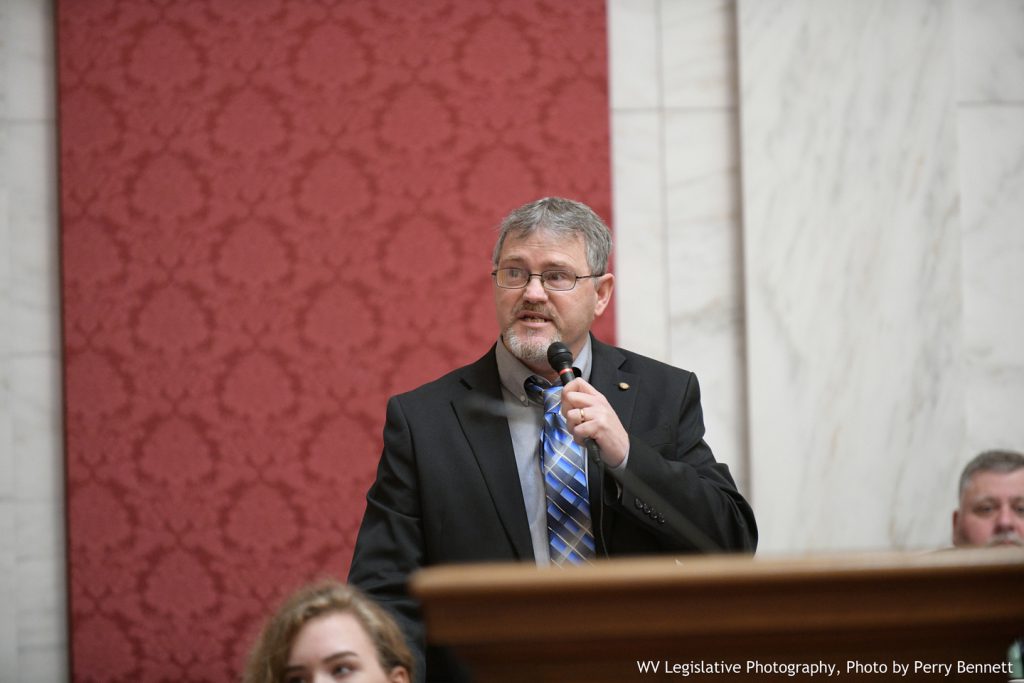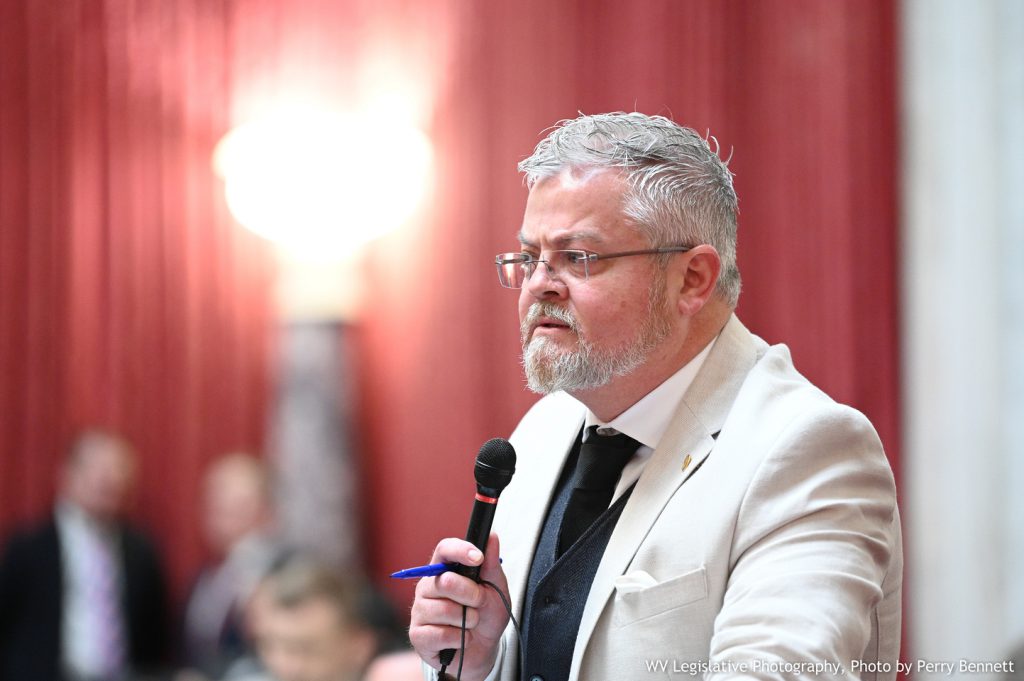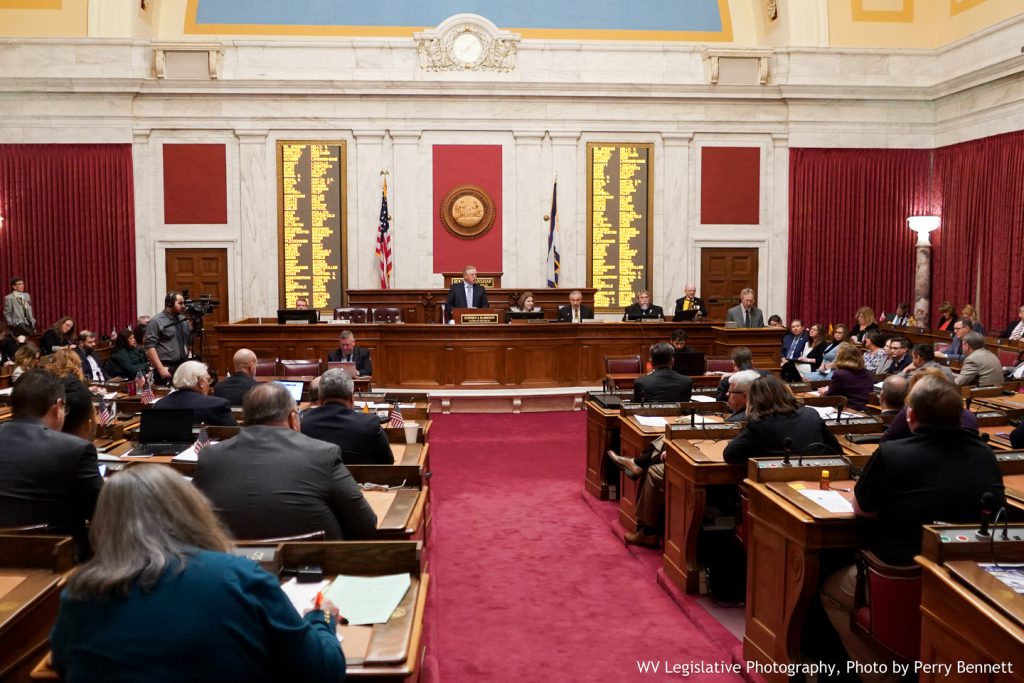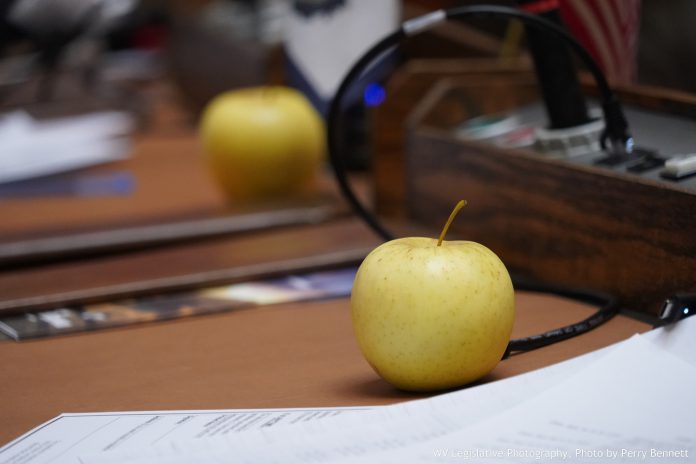House Passes Amended Senate Education Bill
After days of deliberation, and close to 11 hours of debate on the amendment stage, the West Virginia House of Delegates passed a Senate education bill with several changes.
The House passed Senate Bill 451 in a 71-29 vote. The bill as amended by the House included a 5 percent pay raise for teachers and service personnel, a $250 tax credit for teachers and service workers purchasing supplies, a salary increase for math teachers, a provision including seniority to be considered in a reduction in force decision unless the last personnel evaluation is unsatisfactory, a $1,000 year-end bonus for teachers and service personnel who miss fewer than four days, and a provision providing a law enforcement officer in every school.
The bill also capped charter schools to two in West Virginia. These two charters would have to be low-performing Title I elementary schools and a majority of parents and teachers would have to vote in favor of conversion. The bill also was changed to eliminate Education Savings Accounts, or ESAs.
House Finance Chair Eric Householder, R-Berkeley, estimated the total cost of the bill to be about $202 million.

Delegate Daryl Cowles, R-Morgan, supported the bill, commended members of the House for sorting through provisions of the bill and compared the process to cooking chili.
“We sorted through the ingredients. Some things went in and some things did not go in,” Cowles said, mentioning several provisions he supported including the pay raise, the two charter schools, expanded Innovation Zones, and bonuses for math teachers. “These were the good things that went into this pot of chili.”
Others, including Delegate Mick Bates, D-Raleigh, weren’t optimistic.

“It has improved substantially from what was sent over from the Senate,” Bates said. “Overall, we’ve done excellent work. There were many things in the bill I am in favor of and would support. My concern is what we will be voting on will not be what we sent over to the Senate.”
Bates’ biggest concern was the charter school provision.
“If charters would have come out, I would have been comfortable with the bill we had,” Bates said. “However, there is no way this is going to be the final product. So the question is what does the Senate do? If they take the position that we need to expand charters, I don’t think the House will accept that and it puts at risk all the good things in the bill.”
Bates also was concerned about was the local share of state aid.
“We did things to help counties with low population or those losing population and did things to help counties with growing populations. The problem is that over time, this will cause bigger differences between the amount of state aid that goes into these counties. The problem is in the near future we’re going to see legal challenges as well as fighting over state dollars for education.”
Senate Bill 451 was an originating bill out of the Senate Education Committee. The committee advanced the bill Jan. 28 and the Senate made a rare move to commit the bill to the Committee on the Whole—which comprises all members in the Senate.
Senators called and questioned several witnesses and advanced the bill to the floor, passing the measure in an 18-16 vote.
As it passed the Senate, the bill included unlimited public charter schools, 2,500 ESAs for households making under $150,000, a bonus for math teachers, a tax credit for school supplies for teachers only, a year-end bonus if teachers aren’t absent more than four days, $24 million for student support personnel and a provision making it where reduction in force decisions would not be based on seniority alone.
The Senate’s version included a provision that had no pay during work stoppages unless days are made up, and a provision requiring unions to get written permission from members before spending membership dues on political causes.
The Senate’s version also included a non-severability clause.
A proposed strike-and-insert offered in the House Education Committee made several substantial changes to the version that passed out of the Senate. The biggest changes included making charter schools a pilot program and capping them at two for the state. The Education Committee’s version also eliminated ESAs.
The Education Committee’s version also expanded the year-end bonus to include service personnel, added that teachers would get paid during work stoppages and could have extracurricular activities, said reductions in force decisions would be on seniority plus evaluations, and eliminated the provision requiring unions to get written permission from members before spending membership dues on political causes.
The House Education Committee advanced its strike-and-insert last Friday following three days of discussion. The bill then headed to House Finance.

Monday started off with a public hearing at 8 a.m. where many voiced their opinions on the bill. As per a motion adopted on the House floor on Feb. 8, the House Finance Committee hosted a second public hearing at 5:30 p.m. The committee met in between and after the two public hearings to discuss the bill, hear from speakers, and go over their own proposed strike-and-insert amendment.
About 60 people spoke in the two hour-long Monday evening public hearing to a packed House chamber. Some senators stood at the back of the chamber to listen to the speakers.
A majority of those who spoke Monday evening voiced strong opposition to the measure. They expressed concerns that certain provisions in the bill would create wider gaps between higher- and lower-income families, and expressed fears that certain provisions could result in losses of funding for public schools.
Heather Blankenship, a teacher and mother of four, told the committee that although she felt there are problems with public schools, she didn’t think these problems would be solved by adding charter schools or ESAs.
“We need highly qualified teachers, seniority, competitive pay, and support from the Legislature,” Blankenship said.
Those who supported the bill disputed that there would be a loss of funding for public schools, said the bill would give parents more choices of where to send their kids, and mentioned the 5 percent pay raise.
Supporters also mentioned other states with charter schools and ESAs. There are 44 states and the District of Columbia that have charter schools. Five states currently have ESAs. Nevada’s ESA program currently is not operating.
Dan Brokke, a pastor and administrator at Grace Christian School in Huntington, spoke in favor of the bill.
“Please vote in favor of this bill and include ESAs. This would not only be a help to students in private schools but public school parents could use it toward extra-curricular activities or college courses,” Brokke said. “Think about the children and their parents.”
Debate and testimony extended into Monday night. The committee later took up its proposed strike-and-insert, which proposed changes to the House Education version.
The Finance Committee’s proposed strike-and-insert made a few changes to the Education Committee’s strike-and-insert. However, the committee ultimately ended up rejecting the proposed strike-and-insert in a narrow 13-12 vote near midnight.
The committee met early the following morning and voted 17-8 to advance the House Education proposed strike-and-insert. The House then received the bill and took it up for immediate consideration, advancing it to second reading.
“We went line-by-line, point-by-point through this bill to work with all parties in order to build consensus and support for the House’s changes to this bill,” said House Education Committee Chairman Danny Hamrick, R-Harrison. “In the end, we drafted a product that was able to pass this House on a wide 71-29 margin.”
Senate Bill 451 now heads back to the Senate for further consideration.
“There’s a long way to go,” Bates said. “It’s a long way from over. The ball is down in the Senate’s court. They will receive it. I don’t expect they will accept it. I expect they will reject it. They will ask us to recede and we will not. We will trade messages for next couple of days, put a conference committee together and see where it goes from there.”

